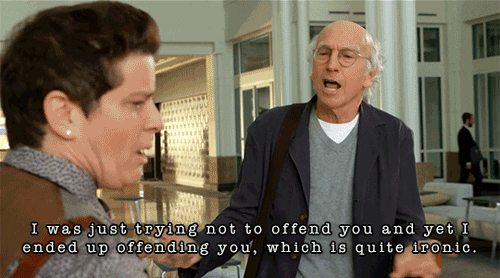Thomas Shey
Legend
I more or less agree with Umbran above here; in a more traditional style game, if anything the GM has rather more agency than I think necessary, or, in many cases, desirable.
Well, for example though, a DM can do that.For example - in d&d a DM doesn’t have the agency to make all weapons do 1d20 damage. And while the d&d DM can technically railroad and still follow the rules - the social contract generally reduces the agency to do that as well.
And the DM does not have to follow the "social contract"....if fact, the DM does not even have to agree to the idea of a social contract.
Everyone has to follow the social contract. The players can just as easily ask the dm not to come back as the dm can to the players.And a DM can even make a house rule "all weapons do 1d20 damage", no different then any other house rule.
And the DM does not have to follow the "social contract"....if fact, the DM does not even have to agree to the idea of a social contract.
Well…Everyone?

I mean if you want to be all vague sure.Every gathering of humans has "social contract", though it is often unstated. We do not interact without some expectations of etiquette - and those are effectively a default social contract.
I get everyone here might be talking about some different social contract then the traditional social contract idea that has been used in RPGs for 50 years...Everyone has to follow the social contract. The players can just as easily ask the dm not to come back as the dm can to the players.
Well…
Just be advised that not doing so will entail consequences
Like you said, many games do restrict GM agency. The more narrative focused they are the more restrictive they tend to be, despite many claims from fans of PBtA, Burning Wheel, FATE and similar systems. You may like the restrictions or be in the game for the stuff it does let you do as a GM, but that doesn't mean your agency isn't restricted; it just means you don't care.This came up in another thread and I want to see what folks think about the idea.
When we talk about "Player agency" (which we do a lot around here) usually we are talking about the ability of the players to make informed decisions that impact the outcome of play.
I am curious is folks think there is such a thing as "GM agency" with a similar definition. More importantly, I am wondering if folks think if there are styles or elements of play that limit "GM agency" in a meaningful way.
For my own part, if we are talking about traditional RPGs (like D&D or GURPS or whatever), I don't think "GM agency" is a meaningful term. It is all "GM agency" because the rules start with the premise that the GM decides on the rules, and all decisions ultimately flow from the GM. While a GM may decide to allow game mechanics, die rolls or player decisions to inform or usurp that decision make, the GM still ultimately has the authority to change any decision. There is no mechanism in traditional RPGs that can limit "GM agency."
There are other kinds of games -- story now, for example -- that I think do define the GM much more as "just another participant" and therefore include rules and mechanisms that inherently limit what options are available to the GM. In these cases, "GM agency" is just a different kind of "player agency" because the GM is just another kind of player. Granted, I am not overly familiar with games of this type and it is totally possible I am misunderstanding the nature of, say, GM moves in Apocalypse World as a mechanism that defines and restricts "GM agency" in a way similar to player moves. I am sure @pemerton and @overgeeked will be along to correct me soon enough.
So, what do you think. Is "GM agency" a meaningful term and worth talking about in a similar context to "player agency"?
See, to me that's illusionism, which I generally prefer to avoid, but as long as your players never found out I'm sure it was a positive for you and your group.I ran a horror game twice this summer that was basically "here's a bunch of spooky ideas -- let's toss them into a haunted house." Both times I ran it, the two different groups of players assembled a whole working thesis for what was going on and why that I never thought of. I naturally ran with the ideas, though, which were really great and accidentally made me look extremely smart.
